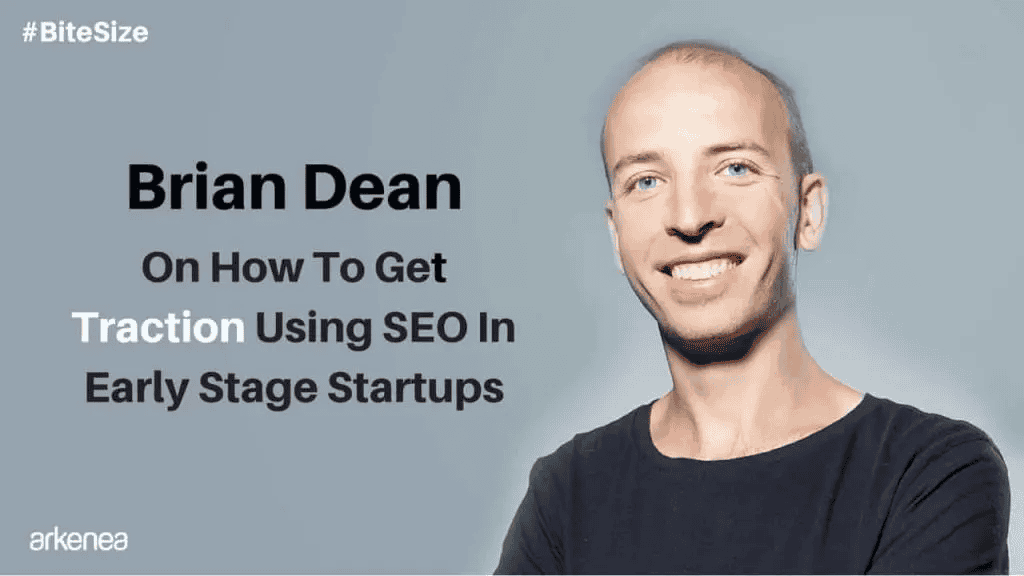Brian Dean On How To Get Traction Using SEO In Early Stage Startups
- August 26, 2015
- Posted by: Rahul Varshneya
- Category: Healthcare App Development

#BiteSize is a video series where leading experts answer some of the most pressing questions entrepreneurs have while building or marketing their startups.
In this latest episode of #BiteSize, Brian Dean talks about the most important factor that will help you get traction using SEO or Search Engine Optimization in your startup.
[Transcript of the video below]
Brian Dean
Brian Dean is one of the world’s most sought-after SEO experts and the founder of Backlinko.com, a popular blog that focuses on actionable SEO and digital marketing techniques and strategies.
Transcript of the Video
The fact is, SEO is a marketing strategy that takes time. It’s not like Facebook ads where you put money in and get traffic right away. It takes time to gain authority, it takes time to gain trust in Google.
That being said, you can get results very very quickly with SEO and the key to doing that is to find the right keywords. Because, if you’re targeting keywords that are super competitive, you’re talking about years and not months before you start getting traction.
If you target really competitive keywords, you may be able to get some long tail traffic so when some people put in some long keywords, they can find you. But for the most part, you want to be targeting keywords, when you’re first starting, that are longer tail and less competitive. So these are the keywords that are usually 3+ words.
For example, you have an app that was helping people book doctor’s appointments. So you wouldn’t want to target a keyword like ‘find a doctor’. Now, ideally that’s what your target customer is probably searching for so you think perfect. The problem is that it’s so competitive that it’s going to take you years, if ever, to hit the first page. But something more specific, a little bit longer, like ‘apps for iPhone to find a doctor’, is much less competitive and can convert better for you on a percentage basis on that sort of keyword.
And then when you start to do all the other stuff involved in SEO like content and on-page optimization and link building, you rank a lot faster for those longer tail keywords much faster than you would if you went after these impossible ones if you were just sitting and waiting for you to actually hit the front page.
